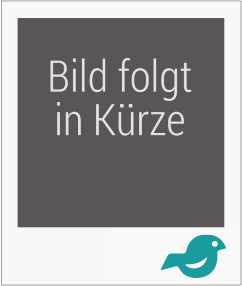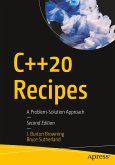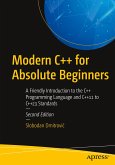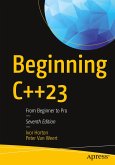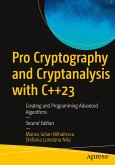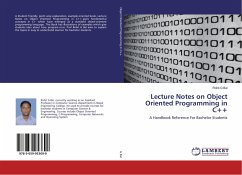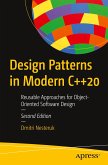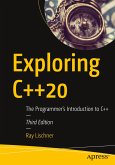Ready to learn programming with less effort and more fun? Then do it the lazy way! C++26 for Lazy Programmers uses humor and fun to make you actually willing to read and eager to do the projects as you master the popular and powerful C++ language.
Along the way it introduces features from the new C++26 standard including increased support for compile-time computation with constexpr and static_assert, as well as contracts, and covers ranges, views, move semantics, format strings, smart pointers, lambda functions and concepts (template parameter requirements), and provides brief introductions to coroutines and lazy evaluation.
With this unique method, you ll stretch your abilities with a variety of projects, including your own C++ arcade game. You'll construct your own classes, templates, and abstract data types. After reading and using this book you ll be ready to build real-world C++ applications and game projects on your own.
What You Will Learn:
Explore the brand-new C++26 standardProgram graphics and games with the SDL library, using SSDL, the "Simple SDL" wrapper libraryUse the most common C++ compilers Visual Studio in Windows; g++ with Ubuntu, Fedora, Manjaro or Debian Unix, or MSys2 and their associated debuggers
Along the way it introduces features from the new C++26 standard including increased support for compile-time computation with constexpr and static_assert, as well as contracts, and covers ranges, views, move semantics, format strings, smart pointers, lambda functions and concepts (template parameter requirements), and provides brief introductions to coroutines and lazy evaluation.
With this unique method, you ll stretch your abilities with a variety of projects, including your own C++ arcade game. You'll construct your own classes, templates, and abstract data types. After reading and using this book you ll be ready to build real-world C++ applications and game projects on your own.
What You Will Learn:
Explore the brand-new C++26 standardProgram graphics and games with the SDL library, using SSDL, the "Simple SDL" wrapper libraryUse the most common C++ compilers Visual Studio in Windows; g++ with Ubuntu, Fedora, Manjaro or Debian Unix, or MSys2 and their associated debuggers

